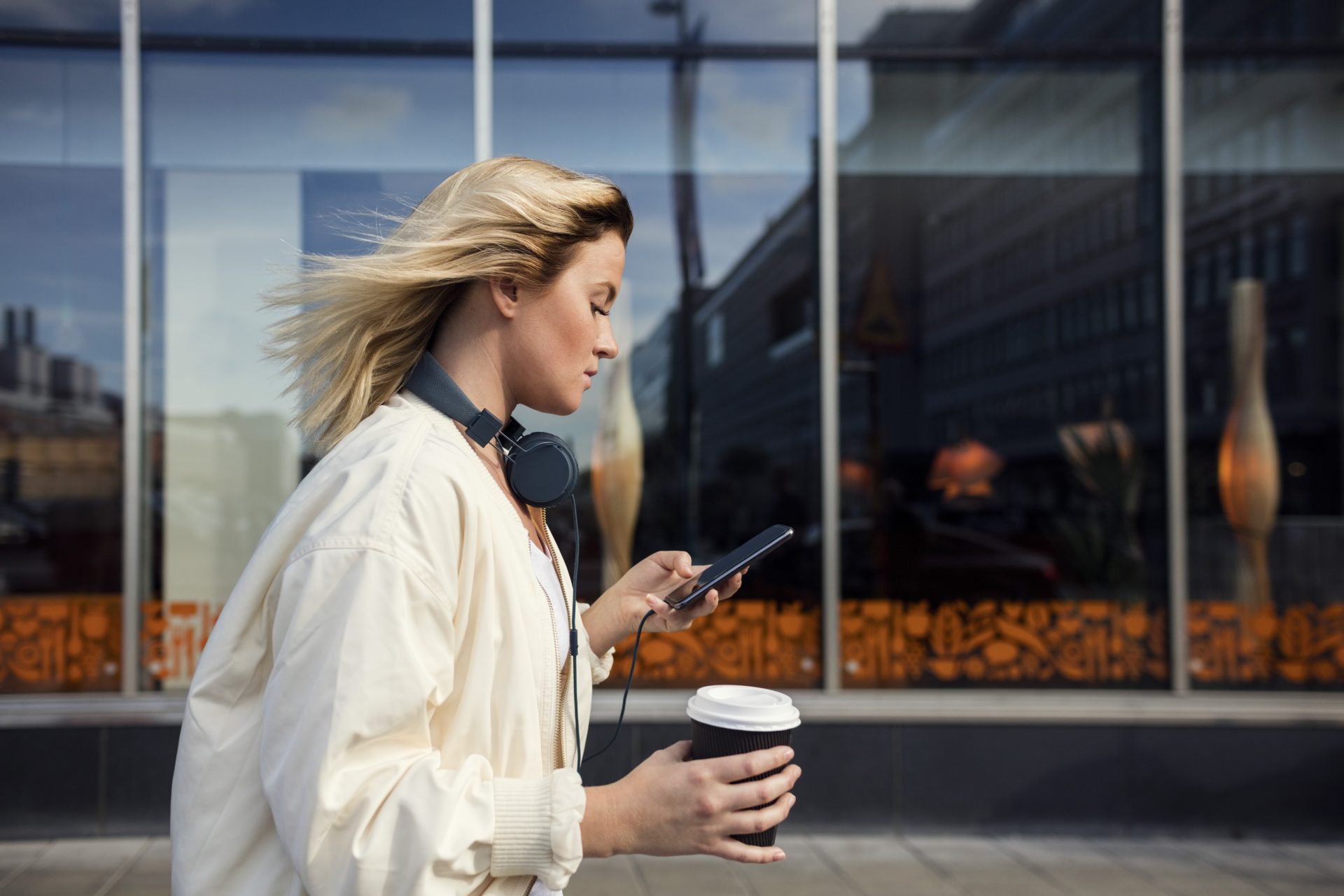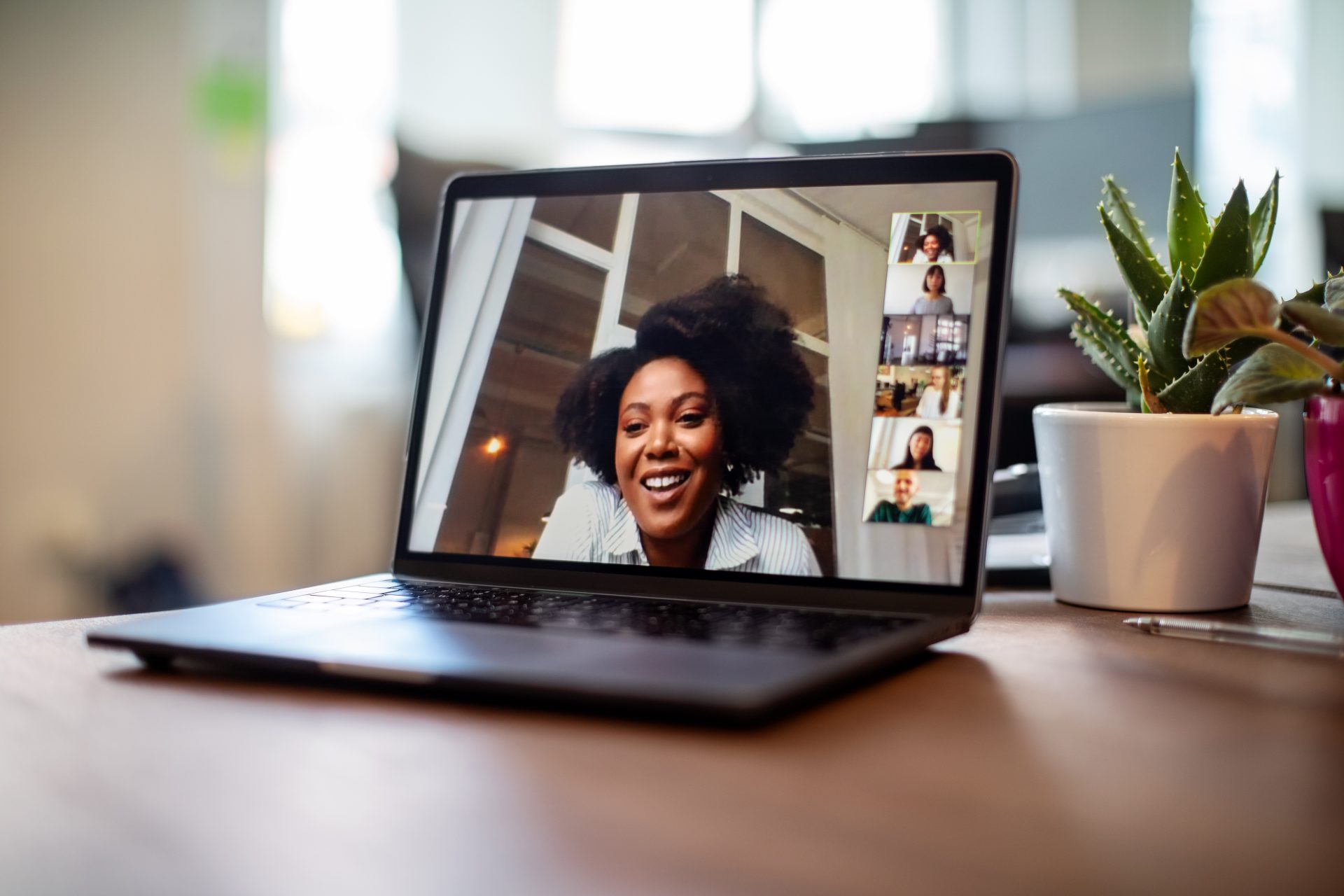The cold weather and legitimate fear of the virus means we’re lacking the desire to leave the house. But is it bad to stay inside all day?
Daily walks have gotten me through lockdown so far. That’s not a groundbreaking statement, given that walking is one thing that we’re allowed to do, and that most of us who are able to have indeed taken up. But forcing myself out of my flat-share and into the wider world really has been the anchor to my day, grounding me in what would otherwise be a pool of monotony.
Yet despite knowing the benefits of my walks, I’ve started fighting with myself about whether or not I should bother. As the days get colder and the rain gets more frequent, I can’t be bothered to pile on extra layers and peel myself away from important work (or, equally important reruns of New Girl).
You may also like
Winter workout motivation: 3 women from cold countries on how they keep exercising
Is this a problem? I ask Dr Jo Daniels, a clinical psychologist specialising in anxiety and fatigue during coronavirus. “First of all, it’s really normal to not want to go outside. At this time of year, we tend to move into hibernation mode. So it’s reasonable to feel a pull to the indoors – especially when there’s so much good stuff on Netflix,” she says. Not to mention the fact that we are, day in and day out, having the fear of the virus drummed into us.
So, I’m delighted that Dr Daniels tells me that it’s fine to succumb to the desire to curl up under a blanket rather than head out in the cold – but only in moderation. “Mental health difficulties generally arise from not getting our basic needs met in one way or another. What we find is that if we stay inside for too long then we end up not having access to some of the things we need,” she explains.
If we stay inside for too long, we don’t have our basic needs met.
First and foremost on that needs list is exercise. While there are no government guidelines about how many steps we should be doing a day, we do need 150 minutes of moderate-intensity exercise a week for physical and mental health, according to the NHS. “Exercise is crucial for both mental and physical wellbeing, as it helps us get rid of built-up tension and anxiety and also releases endorphins and makes us fitter to respond to infection,” says Dr Daniels. You can see why that’s more important now than ever before.
But you can get those needs met from home (although if you aren’t motivated to go on a walk, are you really motivated enough to put yourself through a proper training session?). So it still feels like there’s little reason to leave the house.

While “research shows being in nature is particularly good for our mental health,” according to Dr Daniels, the benefits of the outside world are less to do with the actual fresh air and trees, and more about the routine and interactions that things outside of our bedrooms can give to us.
“We’re not supposed to be socially socialising per se, but face-to-face contact is really important for wellbeing,” she says. That means talking to the cashier in the supermarket, smiling at strangers as you walk past them and a socially distanced walk with a friend who lives close by really can do wonders for you.
“We’re social animals, so we really need that. But what’s key is that talking to people gives you perspective. The longer you spend inside the longer you have to focus on your own thoughts and your worries. There’s no distraction from that. It is a trap I think people fall into, as without perspective we might feel low, and the lower we feel the less likely we are to do things that make us feel good, and then we’re more likely to spend more time on our own and focus even more on our own concerns.”
You may also like
Social fitness: spending time with family and friends can improve your health, even over Zoom
My colleague Hanna, Stylist’s senior beauty writer, has experienced this all too well. “With the days blurring into each other, I suddenly realised I hadn’t left my house for 14 days. I don’t really have a solid reason as to why – between the cold weather, dark days and a lack of motivation, I just couldn’t really bring myself to go out for a walk,” she says.
“I finally got myself out of the house for a lunchtime stroll and while I felt a lot better, I have to say – I found it quite boring. The only convenient walking path near me is along a dual carriageway – not lush parks or gorgeous beaches like I see on Instagram. But I felt like my mind space had definitely shifted for the better when I got back home.”
As with everything, “there are exceptions to those who need to be outside to feel better, such as those who are real introverts,” says Dr Daniels. But importantly, there’s also those who have a real fear about the virus, or who need to shield. “If we force these people to go outside then their mental health will actually become worse. I suppose right now it’s about finding a balance between what is meaningful and what is safe,” says Dr Daniels. “Going for a walk on your own might not be as stimulating but actually, it might feel safer and therefore more suitable.”
Leaving the house is about finding a balance between what is meaningful and what is safe.
But what about those who can’t get outside? With the numbers of coronavirus cases on the rise, there are more and more people in isolation, legally banned from leaving their homes. “It’s definitely much more difficult for those people, but I’d encourage them to use video call rather than just the phone. It allows you to have much more nuance during your interactions.
“The other thing they can do is just make sure they’re working a little bit harder on the depth of connection, rather than the frequency. It’s really important to think about what you need from an interaction and who you want to speak to in order to get that.”

Another important step for safeguarding mental health when you can’t, or don’t want to, leave home is to find a different anchor. If you, like me, usually use walks to punctuate your day, “it can become easy for your day to just become one big pool of work when staying inside,” says Dr Daniels. “It’s really important to keep a really clear distinction between daytime and evening with good routines.”
“I know there’s a lot of talk under the heading of ‘doing stuff’ during lockdown, but having something meaningful to do, and that makes you feel good, is important. We can’t do the things we want, but choosing things that are important to you and creative is really key.”
She also sends another reminder about the importance of keeping active if you aren’t doing that on a daily walk. “But we also need to be able to recognise when you’re starting to struggle with your mental health because you need to be able to notice the signs that are relevant to you in order to ask for help.”
These can include spending more time worrying than not worrying, lacking in motivation, little interest in doing the things that you used to do, and withdrawing socially – including from Zoom calls.
“I think it’s important to remember that it’s healthy to have a good dose of fear right now. Fear is protective and actually, we do need it to mobilise us to make the right decisions. Being afraid of something doesn’t necessarily mean that you have to stop, though. So, yes, be afraid of coronavirus because that will mean you make decisions that will hopefully stop you from getting it, but don’t let it become a preoccupation to the point that you don’t ever leave the house.”
However, if you fancy staying in one day for a slow day under the cover? Be our guest.
Source: Read Full Article